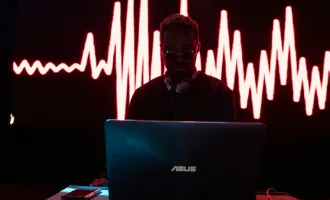Interview with new Institute of Computational Health Sciences director Atul Butte
The following is an edited transcript of an interview with Dr. Atul Butte:
Can you talk broadly about some of your long-term goals for the Institute of Computational Health Sciences?
AB: Starting in April, the idea is for me to take over and start to recruit more faculty, including senior faculty, and grow our educational programs. We can add a curriculum [and] perhaps teach more courses that might be missing. Eventually we want to build up clinical training programs in informatics as well. It’s a board certifiable specialty now.
The research will obviously grow as well, in genomics [and] clinical data - clinical data not just from the electronic medical records at UCSF but perhaps even statewide, looking at all the UC medical schools. [We want to] eventually pool these data so we can do population-level research across all the UC patients. It’s very exciting for me. It’s why I made the move.
Are there plans to one day actually build a physical space for the institute?
AB: They’re more than just plans. The institute will eventually be housed in a new building in Mission Bay between [the] Illumina building and the new hospital.
I wanted to ask you a little bit about your thoughts on the future directions of precision medicine. How quickly do you think precision medicine will be implemented in the field and reach back to basic biology research?
AB: Even today what we think of as precision medicine is very tied towards basic biology. For example, specific DNA mutations tell us when to use a particular drug for malignant melanoma and that comes out of basic [and translational] research.
UCSF is strong in both translational and basic science. Being positioned in Mission Bay around QB3 [and] all those incubators is very exciting for me. I have a track record of spinning out companies out of my lab and I really hope that the others that I’m able to recruit have the same kind of attitude to make sure that what we discover does influence patient care and improve medicine.
Do you have any immediate concrete plans for breaking down the barriers between clinicians and researchers?
AB: I don’t think there are barriers there. The data we can act on as basic scientists can actually start from the clinicians - not just starting with molecular data from animal models, but actually molecular data [and] clinical data from actual patients. Bench to beside says it’s one way. I think that data collected at the bedside could be actually used at the bench.
You’ve talked a lot about the great things that big data and precision medicine can do but what do you think are some of the shortcomings or some of the areas that we lack in technology currently?
AB: Technology is less of a worry to me because we’re in the valley that develops this kind of technology. When we think of our data as being big, there are companies in our neighborhood that have much bigger data, like Google and Facebook. We can certainly learn from the best and leverage that.
My bigger worry is a cultural change. I think there are those in the public who are worried about what happens when databases get put together in terms of sales, marketing, [and] when data is inadvertently released. We have to reassure the public that we’re doing this in a responsible, ethically sound way.
I also think it’s going to be a challenge for those in healthcare to change their own behaviors given the data. [If] the data says you shouldn’t do this particular procedure or type of intervention, are we ready to actually change our behaviors? It’s a tough call. I think it’s more sociological effects of big data than actually the technical. I think the technical can be overcome.
I sure hope so. It’s a really exciting field and we’re really excited for the institute to get off the ground.
AB: I am too. I’m thrilled. I’m looking forward to starting there in April. I hope we start to get a bunch of grad students interested in this and take it to the next level.


